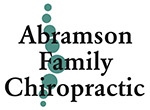Trigger Points and Tension-Type Headache
A myofascial trigger point is a hyperirritable spot found in skeletal muscle that is associated with chronic pain conditions. In a recent experiment that included 32 tension-type headache patients, researchers observed that addressing trigger points in the head and neck muscles resulted in a significant decline in headache intensity. Doctors of chiropractic are trained to recognize and resolve trigger points when managing musculoskeletal conditions, including tension-type headaches. Journal of Personalized Medicine, March 2024
Excessive Social Media Use Can Take a Toll on Mental Health
Questionnaires completed by 600 medical school students revealed an association between using social media for five or more hours a day and an elevated risk for anxiety, sadness, and stress.
Journal of Education and Health Promotion, April 2024
Journal of Education and Health Promotion, April 2024
Summertime Skin Protection Tips for Parents
To best protect a child’s skin this summer, pediatric dermatologist Dr. Jayden Galamgam recommends avoiding insect-heavy areas; dressing your child in protective clothing; using appropriate insect repellents; properly cleaning minor scrapes and cuts; using a broad-spectrum sunscreen (at least 30 SPF); minimizing sun exposure during peak hours; and in the event of sunburn, use a cool compress, calamine lotion, and aloe vera-based gels. Pediatric Dermatology, February 2024
9/11 Responders May Face Greater Risk for Dementia
New research suggests that individuals exposed to higher levels of toxic dust during rescue and recovery operations at the World Trade Center site following the September 11 attacks have an elevated risk for early-onset dementia when compared with their peers with no exposure or who wore effective personal protective equipment. JAMA Network Open, June 2024
Healthy Eating Makes Teens Happier
Using data from the Health Behavior in School-Aged Children study, researchers report that eating breakfast and fruit and vegetables daily are both associated with a greater sense of life satisfaction in adolescents. European Journal of Investigation in Health, Psychology and Education, May 2024
Sit Less to Reduce Back Pain Risk
An analysis of data from the UK Biobank study revealed that for each hour of sedentary behavior per day that an individual exchanges for physical activity, their risk for low back pain falls by up to 8%. Journal of Orthopaedic and Sports Physical Therapy, April 2024
“No one wants to quit when he's losing and no one wants to quit when he's winning.” ~ Richard Petty
This information should not be substituted for medical or chiropractic advice. Any and all health care concerns, decisions, and actions must be done through the advice and counsel of a health care professional who is familiar with your updated medical history.
